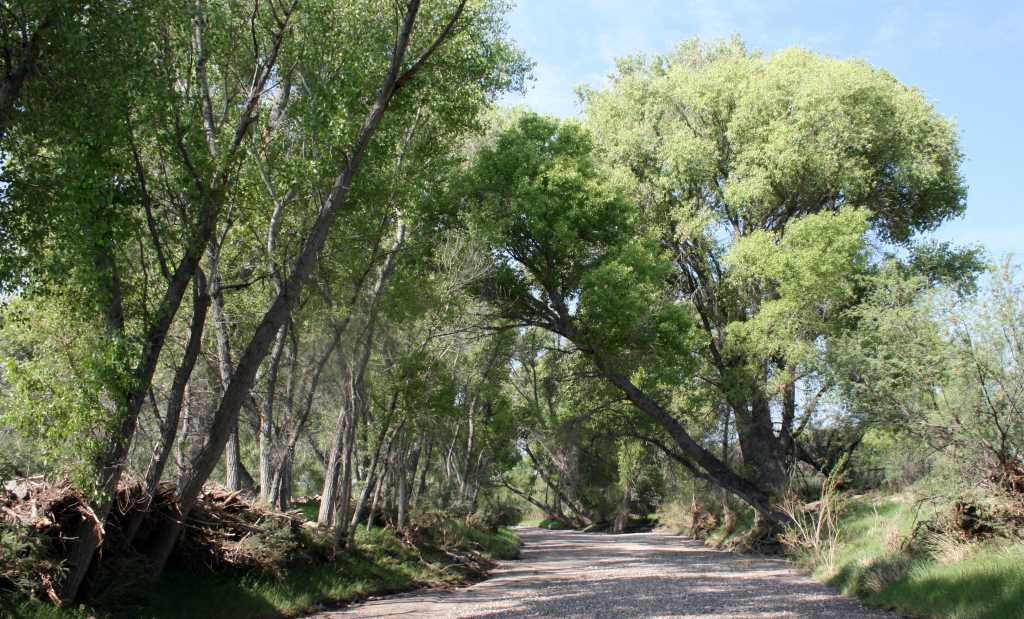“Understanding Soil Health and Watershed Function” is a new teacher’s workbook by Didi Pershouse, now available as a “sneak preview” for educators preparing their fall lessons. The Dixon Water Foundation supported the production of this resource, which was a joint project of the USDA Natural Resources Conservation Service, the USDA Southern Plains Climate Hub, The Soil Carbon Coalition, and Redlands Community College.
Allen Williams workshop presentations now online
Allen Williams, Ph.D., recently shared his experiences as a consultant, rancher and pioneer in grass-finished beef production during a workshop at Dixon Ranches Leo Unit, co-hosted by the Noble Foundation. Williams offered his perspectives on soil health, adaptive multi-paddock grazing and forage management, high attribute pasture-based meat production, and alternative marketing systems. Presentations from this workshop are now online:
- Grass Fed Beef Genetics & Finishing [ PDF ] [PowerPoint]
- State of Grass Fed Industry [ PDF ] [PowerPoint]
- Adaptive Grazing and Relationship to Soil Health [ PDF ] (36MB)
Williams is a 6th generation family farmer and founding partner of Grass Fed Beef LCC and Grass Fed Insights LLC, and a partner in Joyce Farms, Inc. He has consulted with more than 4,000 farmers and ranchers in the U.S., Canada, Mexico and South America on operations ranging from a few acres to more than one million acres. Williams pioneered many of the early grass-fed protocols and forage finishing techniques, and has spent the last 15 years refining them.
Study affirms adaptive grazing’s water benefits
Adaptive multi-paddock grazing enhances water conservation and protects water quality, according to a recent Texas AgriLife study published in Agriculture, Ecosystems & Environment.
“We found grazing management practices do have a significant influence on ecosystem services provided by rangelands,” said co-author Dr. Srinivasulu Ale, a geospatial hydrology associate professor. “Not only did the multi-paddock grazing practice provide several hydrological benefits such as increased soil infiltration, increased water conservation and decreased surface runoff, but also environmental benefits such as water quality improvement.”
Richard Teague, an AgriLife rangelands researcher in Vernon and science advisory board member for the foundation, was another co-author on the study. Teague said the research was designed to help producers assess the hydrologic and water quality impacts of traditional and alternate grazing management practices and identify best management practices for long-term sustainability of rangelands.
The Dixon Water Foundation funded the research project and employs adaptive multi-paddock grazing on Dixon Ranches.
For a summary of the research findings, visit the Texas AgriLife news website. The complete journal article is also available on ScienceDirect: “Evaluating the ranch and watershed scale impacts of using traditional and adaptive multi-paddock grazing on runoff, sediment and nutrient losses in North Texas, USA.”
Riparian workshop at Alamito Creek on April 13
The first Chihuahuan Desert Riparian and Pond Management Workshop will be held at on April 13 at the the Dixon Water Foundation’s Alamito Creek Preserve. This workshop is a collaboration between the foundation and Texas A&M AgriLife Extension Service, Texas Parks and Wildlife Department, Sul Ross State University, Borderlands Research Institute, U.S. Department of Agriculture Natural Resources Conservation Service, and the Nature Conservancy.
Registration is set from 8:30-9 a.m. at the Marfa National Bank, 301 S. Highland Ave. in Marfa. At 9:15 a.m. participants will caravan to the Alamito Creek Preserve for the remainder of the workshop.
“This workshop will be fast-paced and held in the field on rough terrain and walking to various sites will be required,” said Jesse Lea Schneider, AgriLife Extension agent in Presidio County and a workshop coordinator.
She said proper dress, for example sturdy shoes and a hat, are a must.
“Please bring your own lunch and plenty of water,” she said. “In the event of inclement weather, the workshop will be rescheduled.
“Our Chihuahuan Desert Riparian areas are some of the most misunderstood and underappreciated of the ecosystems. Our hope is to make this an annual event to bring educational opportunities to landowners and enthusiasts across the area.”
Individual registration is $10. RSVP by April 11 by calling 432-295-0342.
Topics and speakers include:
– Introduction to Dixon Water Foundation, Alamito Creek Preserve, Robert Potts, Dixon Water Foundation president and CEO, Presidio County.
– Pond Ecology and Fish Stocking, Peter Woods, AgriLife Extension fisheries program specialist, Bay City.
– Riparian Vegetation and Best Management Practices and Ecohydrology of Streams and Springs, Jeff Bennett, National Park Service physical scientist and hydrologist, Big Bend National Park.
– Linking Pasture to Stream, Dr. Alyson McDonald, AgriLife Extension range specialist, Fort Stockton.
– Grazing Riparian Zones, Dr. Bonnie Warnock, Sul Ross State University professor, Alpine.
– Water and Wildlife, Benefits and Nuisance Control, Dr. John Tomecek, AgriLife Extension wildlife specialist, San Angelo.
– Waterfowl and Wetland Management in Desert Landscapes, Dr. Ryan O’Shaughnessy, Sul Ross assistant professor.
– Farm Bill Programs, Carrie Koennecke, Natural Resources Conservation Service district conservationist, Marfa.
– Texas Parks and Wildlife Department Landowner Incentive Program and U.S.Fish and Wildlife Service, Arleen Kalmback, Texas Parks and Wildlife Department landowner incentive program coordinator, Austin.
– Experiences From a Land Manager, Chase McRory, Texas Parks and Wildlife Department district biologist, Sanderson, and Casey Wade, Dixon Water Foundation manager, Presidio County.
For more information, call Russell Martin, Texas Parks and Wildlife Department natural resource specialist, Alpine, at 432-837-2051, ext. 228 or Schneider at 442-295-0342.
Hickory Creek Watershed workshop in Denton May 21
A Texas Riparian and Stream Ecosystem Workshop in the Hickory Creek Watershed will be held on May 21 in Denton. The training will focus on the nature and function of stream and riparian zones and the benefits and direct impacts from healthy riparian zones. This workshop is supported in part by a grant from the Dixon Water Foundation and is being co-hosted by the City of Denton and the Upper Trinity Conservation Trust. Learn more about this program and similar riparian workshops on the Texas Riparian Association’s website. RSVP required by May 15.
“Growing grass to save water” in Texas Tribune
Colin McDonald recently finished his Disappearing Rio Grande expedition, during which he spent seven months traveling 1,900 miles from the river’s headwaters to its mouth. Along the way, he documented the river’s condition, the lives of people who depend on it, and efforts to conserve it. One of his stops last fall was Dixon Ranches Mimms Unit, where he visited with President and CEO Robert Potts. To honor the end of the project, we wanted to share again the article McDonald wrote for the Texas Tribune about how our ranch is decreasing the amount of sediment and increasing flows in the Rio Grande.
Foundation receives Texas’s highest environmental honor
The Texas Commission on Environmental Quality this week honored the Dixon Water Foundation with a Texas Environmental Excellence Award in Agriculture, the highest environmental honor in the state. These prestigious awards bring attention to the most innovative and effective projects that strive to protect the state’s natural resources.
“With a patient and consistent dedication to holistic land management, the Dixon Water Foundation is assuring the most free and open lands in the state can remain healthy and productive for future generations,” says TCEQ’s announcement. Read more about the foundation’s award on the TEEA website or in this article by the Gainesville Daily Register.
Dixon in txH20’s land and water stewardship issue
The Texas Water Resources Institute’s latest txH20 magazine is dedicated entirely to land and water stewardship and features the Dixon Water Foundation in “Committed to Conservation.” Another excellent article emphasizes that in Texas, conserving private lands conserves water, and starts with this quote from former President and Texas native Lyndon B. Johnson: “Saving the water and the soil must start where the first raindrop falls.”
Rainwater harvesting workshops in Alpine, Marfa
Join drylands permaculture designer and educator Brad Lancaster for “Beyond Rain Barrels” in Alpine and Marfa September 19-21.
Lancaster will give lectures about rainwater harvesting at the Granada Theater in Alpine at 7pm on Friday, Sept. 19 and at the Crowley Theater in Marfa at 7pm on Saturday, Sept. 20. Lectures will be followed by workshops at the Alpine Public Library from 8am – 2pm on Saturday, Sept. 20th, and at the Marfa International School from 9am – 3pm on Sunday, Sept. 21.
Space is limited in these free workshops. Reserve a spot by emailing bigbendrainwater@gmail.com.
Water conservation featured in Lands of Texas
As Texas’s water supplies become increasingly scarce, good land management can play a critical role in protecting watersheds. This was the message of a recent Dallas Morning News opinion piece, “Holistic ranching essential as demand for water grows.” It was also the subject of a recent article in Lands of Texas magazine, which highlights how Dixon Ranches use holistic management to conserve water.


